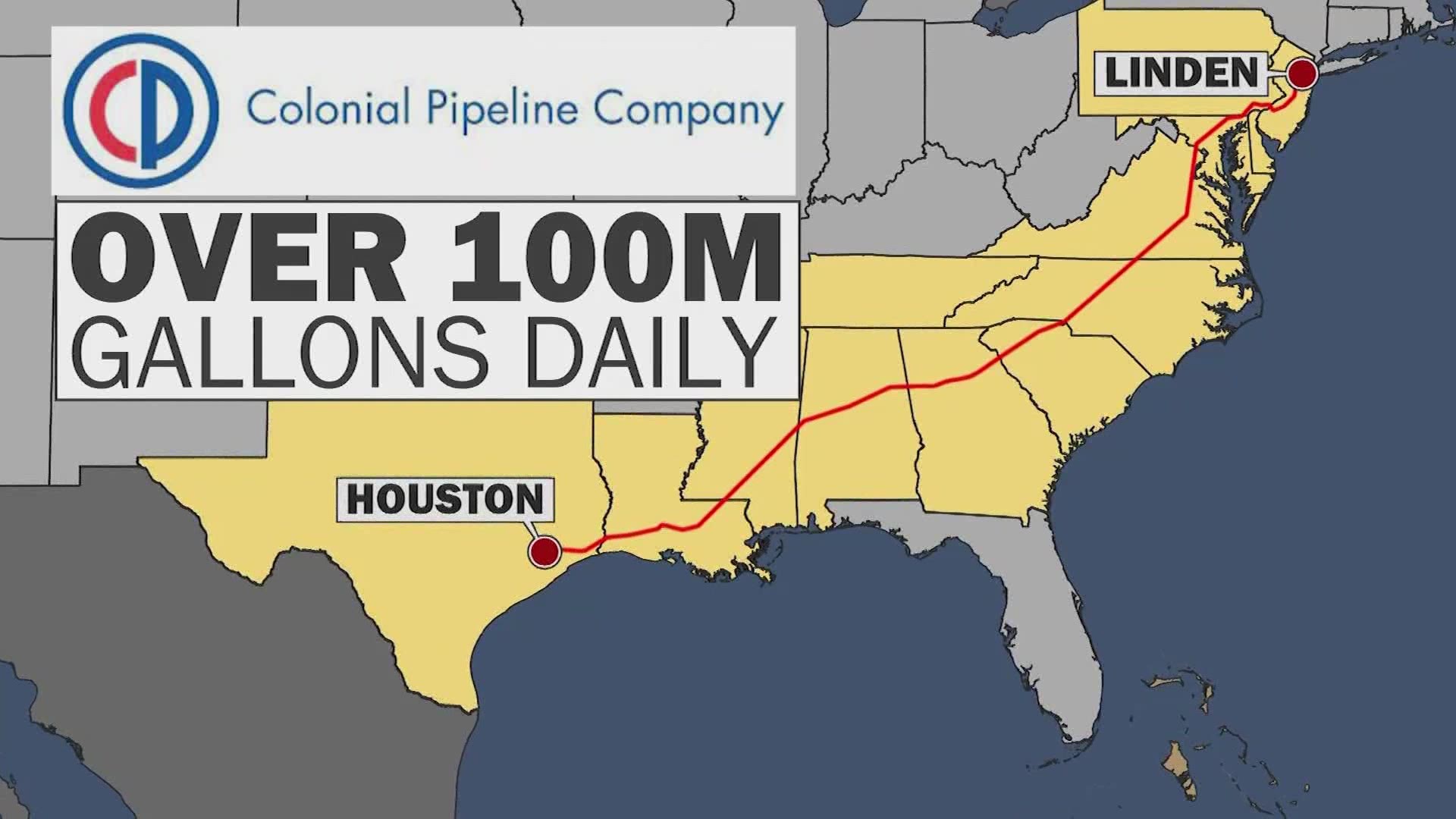HOUSTON — Colonial Pipeline is still working to restore operations along a 5,500 mile-long pipeline days after it was targeted during a massive cybersecurity attack. Through a series of statements, one of America’s largest petroleum pipelines confirms its computer system was hacked and attacked on Friday.
In its first statement about the attack, a spokesperson for the Georgia-based company wrote, “we have since determined that this incident involves ransomware. In response, we proactively took certain systems offline to contain the threat, which has temporarily halted all pipeline operations, and affected some of our IT systems. Upon learning of the issue, a leading, third-party cybersecurity firm was engaged, and they have launched an investigation into the nature and scope of this incident, which is ongoing. We have contacted law enforcement and other federal agencies.”
On Monday, the FBI confirmed that DarkSide Ransomware was used to extort the company. FBI agents are among the investigators working to pinpoint the people behind the malicious keystrokes.
The company hasn't yet said when the pipeline will be fully operational. Drivers and airports in the northeast hope it is soon. Colonial moves more than 100 million gallons of gasoline, diesel and jet fuel daily. That’s reportedly about 45% of the fuel used along the East coast.
“Is it a big issue for us in Houston? No, it really isn’t. And if anything, gasoline prices in Houston might fall because we’ll have a surplus of supply here,” KHOU 11 Energy Analyst Ed Hirs said. “Quite frankly, for 20 years, everybody in the pipeline industry has been expecting an attack like this.”
Chris Bronk, an associate professor at the University of Houston, teaches the next generation of cybersecurity experts.
“This is a big deal,” Bronk said. “It’s a real problem because, what if it’s your bank next or worst of all, and this has happened already, what if it’s a major hospital and they can’t access their electronic medical records and then people start dying.”
So what can you do to protect your access to utilities and personal information?
"There’s no simple, change the password and you’ll be fine approach to this,” Bronk said. “We are long past that.”
Ransomware attacks are a growing problem for the US. The Department of Homeland Security confirms more than $350 Million in ransom was paid out last year, with small businesses especially hard hit. The number of attacks spiked in 2020 by about 300%.
“You know, a lot goes on behind the scenes to make sure the customer has gasoline, diesel and electricity to charge an iPhone,” Hirs said. “And I think this decade is going to be a realization for the American consumer that these supply lines are very vulnerable to interruption.”

